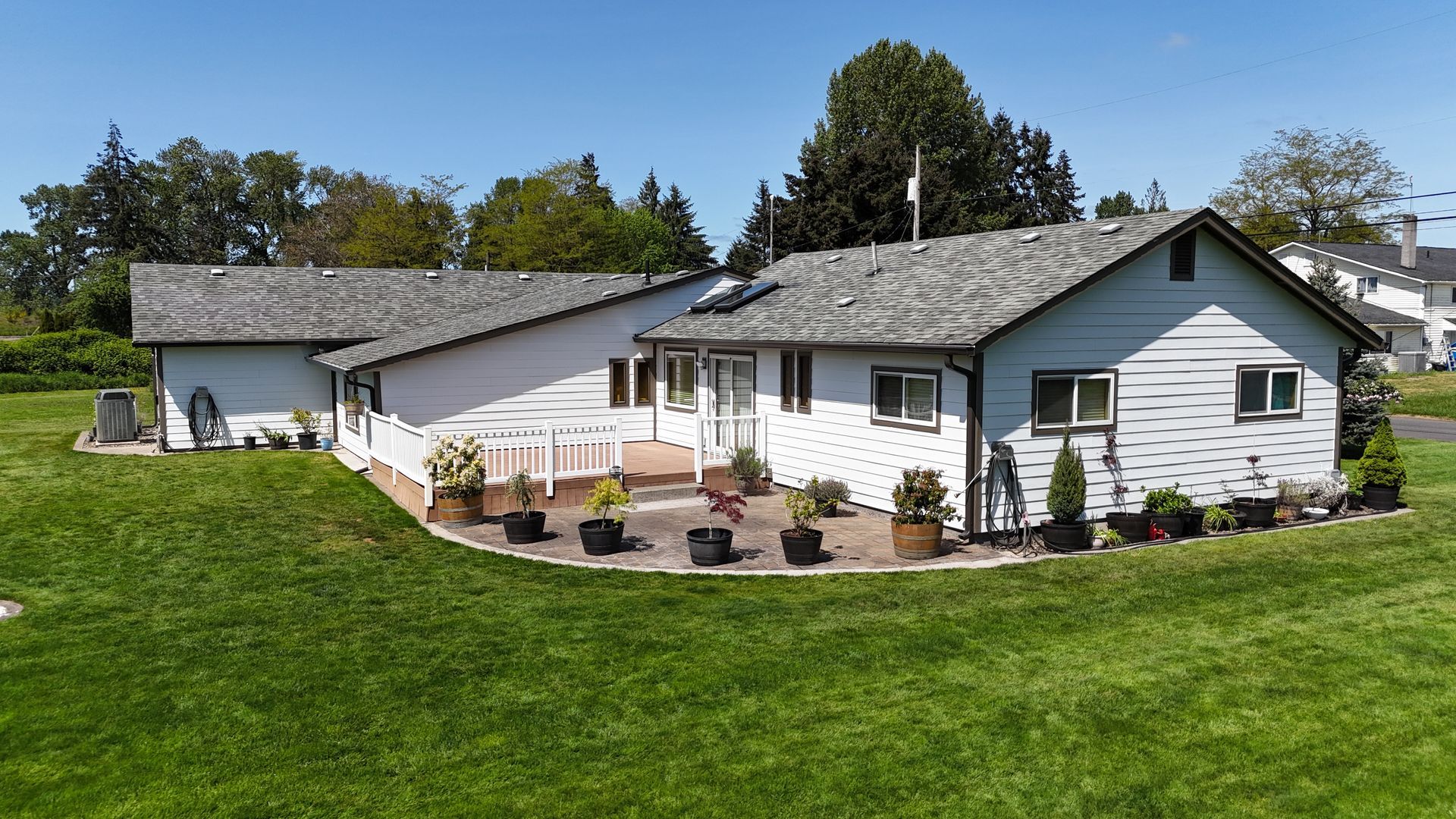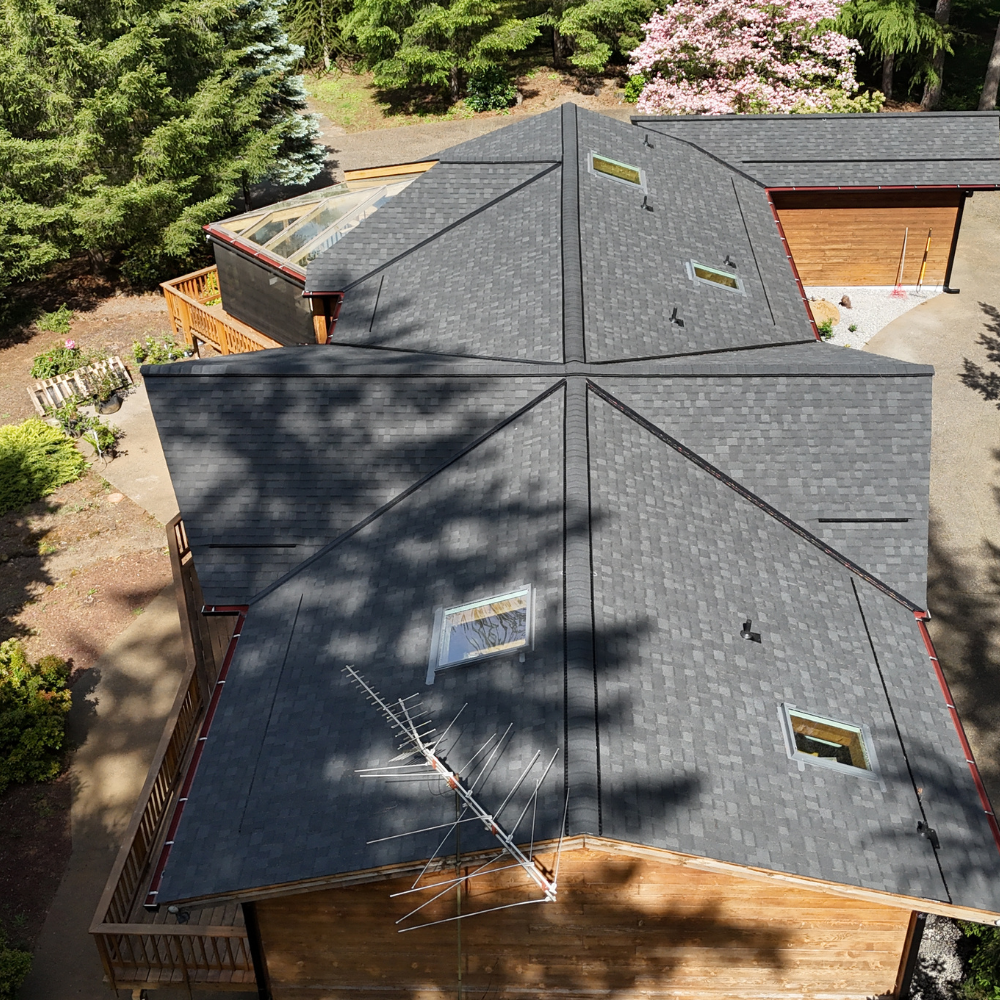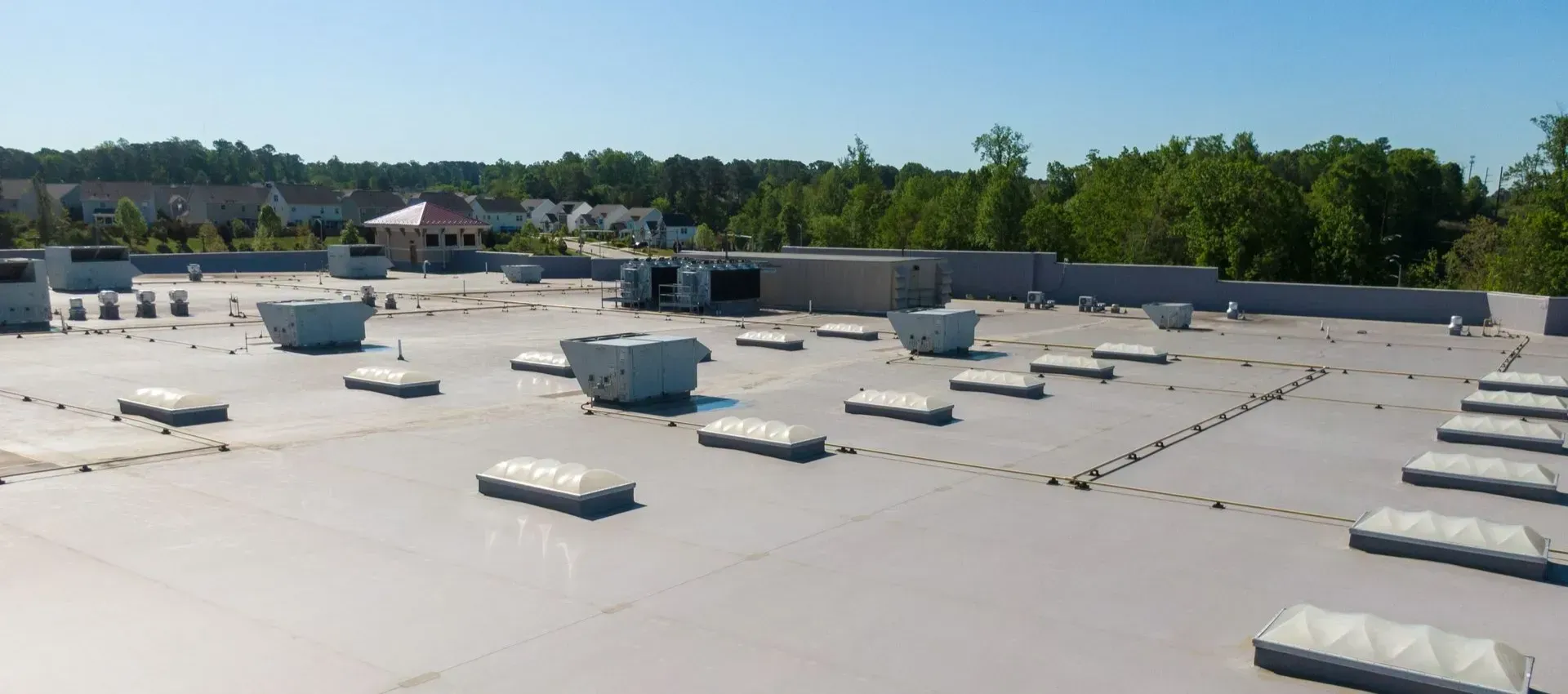ROOFING MATERIALS
TYPES OF ROOFING MATERIALS
RESIDENTIAL ROOFING
Residential roofs typically use asphalt shingles, metal roofing, and composite systems. Asphalt shingles remain the most popular choice for their balance of cost, style, and protection. Owens Corning shingles lead the industry with reinforced nailing zones, algae resistance, and Class A fire ratings, offering homeowners proven durability and lifetime warranty coverage.
COMMERCIAL ROOFING
Commercial systems often rely on TPO, PVC, EPDM, and metal roofing for flat or low slope structures. These materials are engineered for energy efficiency, UV resistance, and long term performance under heavy load and weather exposure. Each system is selected for its ability to reduce maintenance costs and extend roof lifespan in demanding environments.


RESIDENTIAL ROOFING MATERIALS
MATERIALS - RESIDENTIAL ROOFING
A high-quality roof protects your home, enhances curb appeal, and improves energy efficiency. Today’s residential roofing materials are designed for durability, weather resistance, and long-term value, giving homeowners a balance of performance and style.
Common Sloped Roofing Materials:
- Asphalt Shingles – Affordable, reliable, and available in a variety of colors and designs.
- Metal Roofing – Extremely durable, energy efficient, and ideal for challenging weather conditions.
- Composite Roofing – Mimics the look of slate or wood while remaining lightweight and low maintenance.
- Cedar Shake – Offers a natural appearance with strong insulation properties.
- Tile Roofing – Long lasting, fire resistant, and perfect for architectural appeal.
Flat Roofing Materials:
- TPO (Thermoplastic Polyolefin) – Reflective and energy efficient with easy maintenance.
- PVC (Polyvinyl Chloride) – Provides superior waterproofing and chemical resistance for flat or low slope roofs.
- EPDM (Ethylene Propylene Diene Monomer) – A flexible rubber membrane known for long-term durability.
COMMERCIAL ROOFING MATERIALS
MATERIALS - COMMERCIAL ROOFING
Commercial roofing systems are engineered for strength, energy efficiency, and long-term protection. Because building designs vary—from flat warehouses to steep-slope structures like churches and apartment complexes—the choice of materials must fit both function and form.
Common Flat Roofing Materials:
- TPO (Thermoplastic Polyolefin) – Reflective, energy-efficient, and resistant to UV and chemical exposure.
- PVC (Polyvinyl Chloride) – Durable, watertight, and ideal for commercial kitchens or industrial environments.
- EPDM (Ethylene Propylene Diene Monomer) – A flexible rubber membrane that performs well in all climates.
- Modified Bitumen – Layered asphalt system offering exceptional waterproofing and puncture resistance.
- Built-Up Roofing (BUR) – Multiple asphalt and felt layers for maximum durability on large flat surfaces.
Common Sloped Roofing Materials:
- Metal Roofing – Long-lasting, low-maintenance, and perfect for steep-slope buildings like churches or apartments.
- Asphalt Shingles – Cost-effective and adaptable for multi-family or light-commercial properties.
- Composite Roofing – Provides premium appearance and impact resistance with reduced maintenance.





